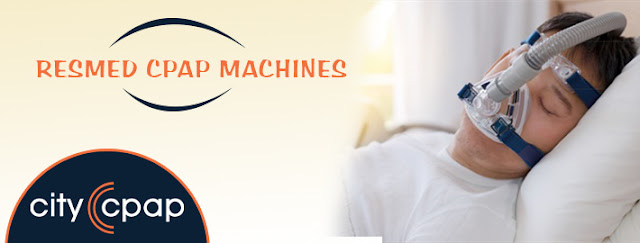Everything You Need To Know About Sleep Apnea
Due to hectic and fast life, many people now a day’s suffer from stress, anxiety, sleeping issues, and many more. Despite old-aged people, younger people are also suffering from sleep issues because of unhealthy lifestyles and many other factors. You may experience snoring or breathing sounds when you have a cold or cough but don’t ignore if this happens on the regular basis. It might look common disorder but it affects your breathing and causes sleeping problems. In that case, medical experts recommend CPAP Masks to patients and other treatments depending upon the severity of sleeping disorders.
What is sleep apnea?
Sleep apnea is a medical condition
in which your breathing is continuously interrupted during your sleep. It might
cause snoring and breathing sounds and normally lasts from 10 to 20 seconds.
What are the types of sleep apnea?
There are generally three types of
sleep apnea that are:
1) Obstructive
sleep apnea: This is basically the most common type of sleep apnea; it occurs
when the muscle supporting the soft tissues in the airway relaxes during sleep
and blocks the normal breathing airflow from in and out. This causes loud
snoring because of interruption in breathing.
2) Central sleep
apnea: It occurs when the brain stops sending signals to the breathing muscles
and it is generally occurred due to various medical conditions.
3) Complex
sleep apnea: It is also called mixed sleep apnea because it is a combination of
obstructive and central sleep apnea.
It can be difficult to identify
whether you have sleep apnea or not because you are sleeping while it occurs,
you can ask your bed partner to observe your sleeping patterns. The symptoms of
sleep apnea are:
- Continuous loud snoring while sleeping
- Choking
- Snorting or gasping when asleep
- Feeling sleepy even if you have enough full night sleep.
- Morning headache.
- Waking with a dry and sore throat.
- Frequently going to the bathroom at night.
What are the causes of sleep apnea?
- Anyone can be diagnosed with sleep apnea but some of the factors that affect are:
- Old age
- Weight
- Anatomical differences
- Smoking
- Variation in neck diameter
- Sex
How to treat sleep apnea?
First, you need to find out
whether you have sleep apnea or not. It can be done by consulting medical sleep
specialist by analyzing your medical history and studying your sleep cycle.
Though many people check it at the home on their own by measuring heart rate,
breathing rate, and oxygen levels during sleep. It can be treated by
maintaining some healthy lifestyles such as
- Sleeping on your side
- Daily exercise
- Losing weight
- Avoid alcohol and other toxic consumption
- Avoid caffeine consumption and heavy meals
- Use nasal sprays, saline sprays, or breathing strips at night
Endnote: It can be stressful to get
diagnosed with sleep apnea but it can be treated in mild and moderate cases
easily by strictly following healthy diets and a healthy lifestyle. In case of
severe sleep apnea issue, the doctor prescribes to use Mask For CPAP
Machine that is worn by the patient during sleep to treat sleep apnea.




Comments
Post a Comment